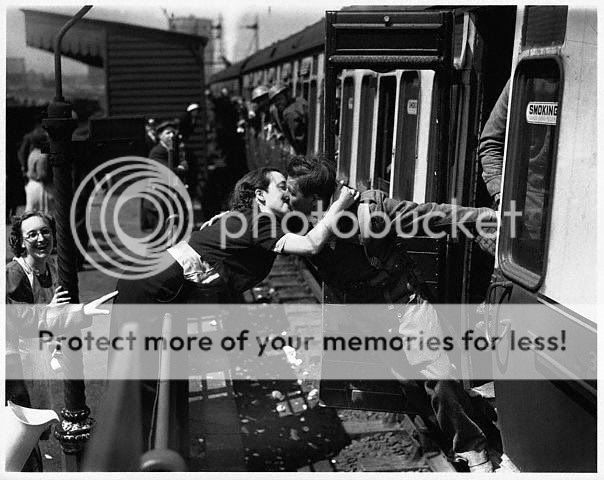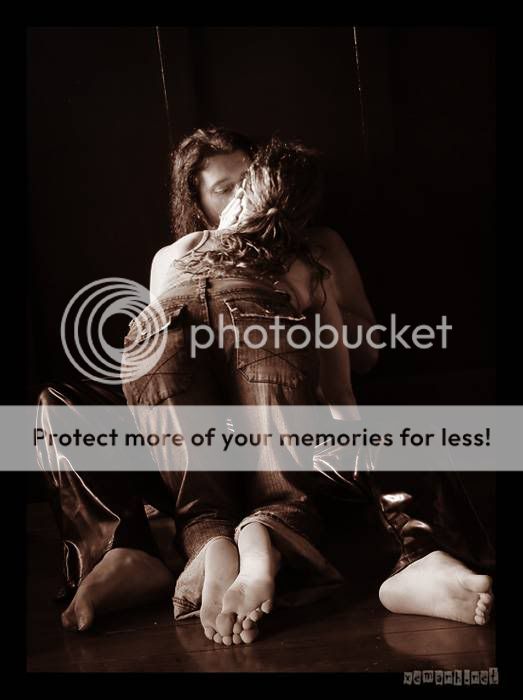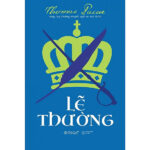Cuộc đời nó đã nghe ba người nói thế. Khác nhau.

Ba nó. Người đàn ông của một thời chiến tranh đi qua, để lại một mái đầu xơ xác những tàn khói còn vương lại phai màu tóc rối, có mảnh đạn còn ghim lại trên đầu làm quà cho mẹ nó, giữa một chiều mưa đi về từ tiền tuyến. Xót xa. Những cơn đau mỗi độ mưa về hay gió bấc lạnh lùng lướt ngang vầng trán đầy những vệt sóng da nhiều lớp gợn đầy. Ngổn ngang.Người thanh niên từ một màu áo trắng thơ thẩn với những bài thơ gửi bạn. Ngây thơ. Để lại. Những bài thơ của hôm nào lưu vào trong ngăn tim kỷ niệm, giữ trong ba lô những bức thư từ hậu phương của em gửi hôm nào, kể từ khi màu áo trắng đổi thành màu xanh của lá rừng. Thư từ qua lại, thương nhau như gió mây dìu dắt, có dưới một bức thư hẹn ngày về với cau, trầu mâm quả qua thăm nhà.Gặp em. Đứng ở đầu con phố nhỏ, nép mình bên bức tường gạch đổ, mắt nhìn thương yêu, hai tầm nhìn chạm vào đáy con tim. Hương thầm. Kết quả tình yêu là một đứa con trai kháu khỉnh mang trên mình một dị tật bẩm sinh, đớn đau cùng mỗi độ mưa về hay gió bấc lướt ngang thân thể gày còm. Dỗ dành. Ông nói: con trai không được khóc!

Mẹ nó. Người con trái của một thời chịu đựng di chứng chiến tranh trong tâm trí, những bài thơ và thư tình nhuộm nát thời gian cất trong rương cũ kỷ.Trót yêu. Chàng trai có mái đầu ngô nghê ngồi nơi góc lớp tập tành thỏ thẻ lời yêu qua con chữ, lời thơ. Vụn dại. Tình bạn chấp cánh bay, có tình yêu ở lại, những lá thư từ chiến trường đi dọc đường thương nhớ.Tình nhân. Trở lại với mãnh áo màu lá rừng loang lỗ những vết bom cào, đạn xé, nhuộm đất đá trên các nẻo đường đi qua. Từ ánh nhìn yêu thương thấy mình nằm gọn yên lành, trong con ngươi đang hằn lên những tia máu đỏ ngầu. Khẽ khàng. Đưa tay chạm đôi má dạn dày gió sương, không dám đưa lên mắt, sợ có giọt nước nào rơi làm rớt linh hồn lính can trường, dẫu có đau thương nào vẫn không tài nào quật ngã, trong đó có cả đau thương từ kết tinh tình yêu còn lại đang quằn quại với những đợt mưa giông, gió bão. Vô tình.Nhìn anh. Nhức nhối với dư âm chiến tranh còn ở lại mãi ở trong đầu. Đưa tay vuốt mắt tình yêu thời vụng dại đến lúc thoát thai cõi tạm, về với đất yên lành. Đứa nhóc ngu ngơ chạy vòng quanh linh cửu, em ngồi đốt sạch giấy vàng, bạc cháy tận còn tro than, mặc cho giọt nước lạnh lùng lăn trên đôi má. Bơ vơ. Đứa con giờ đã trưởng thành, nổi đau di tật vẫn cứ bám quanh đời trai trẻ, ngồi một bên giường mẹ chờ đếm thời khắc tạm biệt một cõi điêu linh, lạnh lùng cày xé thân tàn người phụ nữ. Mười tám năm, lẻ đâu đó vài ngày, lôi những bài thơ, thư tình ra nhờ con đọc lại trước giờ phút chia tay.

Đưa tay chạm đôi má lộ xương hàm trơ trọi, nhìn bằng những yêu thương vào con ngươi đang nổi lên những tia máu đỏ ngầu. Bà nói: đàn ông không được khóc!Em. Thân thể gày còm, gương mặt xương xương, mắt lõm sau gọng kính, tư lự ngồi vẩn vơ với những con chữ đi theo dòng cảm xúc viết ra trong thế giới nhiều màu, được nhìn từ lăng kính vạn hoa. Gặp nó. Nơi góc giảng đường lặng căm, ngồi hí hoái vẽ những vật thể hình thù dị biệt, những bức tranh pha trộn sắc màu hỗn tạp, bố cục bức phá mọi cách nhìn.Dịu dàng. Em ngồi bên nó, nhìn phác thảo, đi cọ, pha màu…rồi viết gì đó không rõ. Đôi khi. Cất tiếng, hát một đoạn, thả hồn bay theo những bản nhạc từ chiến trường xưa. Không biết. Tự khi nào. Thân thể gày còm dựa thẳng vào lưng nó, hát ca, viết những dòng cảm xúc từ những bức tranh pha trộn sắc màu hỗn tạp, bố cục bức phá mọi cách nhìn. Quặng lòng. Trời khóc tỉ tê những giọt mưa lớn nhỏ, đất dãn ra đón một thân thể đàn bà đã đi qua chiến tranh và đời cạn ở tạm thế. Tiển đưa. Chỉ còn hai mái đầu ngồi lại cuối chiều mưa. Em nói: Hãy khóc đi anh, để em lau lệ!( Ảnh: Sưu Tầm )
He had heard three people say the same thing. Different perspectives.
His Father:
A man from the time of war, carrying the remnants of battle—a head streaked with smoke stains fading into disheveled hair, a shard of shrapnel lodged in his skull as a “gift” for his mother, delivered on a rainy day when he returned from the frontlines.
Pain. The echoes of war haunted him, flaring up with every cold wind or rainstorm, carving deep furrows across his forehead like rippling waves of skin, layer upon layer.
Once a young man, wearing a white uniform and scribbling poems sent to friends—innocence woven into verse. Those poems, now tucked away in the chest of memories, accompanied by letters from the rear he had once received. He had departed with a white uniform, only to return clad in the green of forest camouflage.
The letters traveled back and forth, their love as free as clouds carried by the wind. Among them, a promise: to return home with betel leaves and areca nuts as a token of a formal visit.
He met her. Standing at the edge of a narrow street, leaning against a crumbling brick wall, their gazes locked, sinking deeply into each other’s hearts.
Subtle fragrance. Their love bore fruit: a healthy baby boy born with a congenital defect, a shared pain that resonated with every storm, every cold wind brushing against his fragile body.
Consolation. The father said, “Men must not cry!”
His Mother:
A daughter of the war-torn era, carrying in her mind the scars of conflict and in her chest a box of worn poems and love letters aged by time.
She fell in love. A boy with a clumsy head of hair sitting quietly in the corner of the class, his whispered affection expressed through letters and poetry.
Naïveté. Friendship took flight, and love remained—letters sent from the battlefield traced paths of longing.
Her lover returned, wearing a camouflage uniform stained with the marks of war—scratches from bombs, tears from bullets, coated with dust from countless battlefields.
Through loving eyes, she found peace in his weary gaze, though bloodshot with grief.
Gently, her hand touched his sun-worn cheeks but dared not brush his eyes, fearing any tear that might fall would shatter the soul of a soldier whose courage had withstood all manner of suffering, including the torment born of love—a child who now writhed in pain amidst stormy winds and rains.
Unyielding. She gazed at him, burdened by the remnants of war etched permanently in his mind.
When the time came, she placed a trembling hand over his weary face and closed his eyes. She let him rest, free from the pain of a tumultuous world, while their oblivious child ran circles around his coffin. She burned all their shared memories—gold paper turned to ash—as cold tears silently streamed down her cheeks.
Bereft. That son, now a man, still bore the scars of his condition, sitting beside his mother’s bed as the cruel passage of time tore through her frail body. Eighteen years and a handful of days later, she asked him to read her old letters and poems one last time before bidding farewell.
With trembling hands, she touched his angular cheekbones, gazing lovingly into his eyes bloodshot with anguish. She whispered, “Men must not cry!”
Her:
A frail figure with a bony face, sunken eyes behind thick glasses. Her thoughts wandered as she penned words flowing from emotions colored by the kaleidoscope of life.
She met him. In a quiet corner of the lecture hall, he sketched bizarre, otherworldly forms—paintings with chaotic colors and rebellious compositions defying conventional perspectives.
Gentle. She sat beside him, watching his sketches, mixing paints, and writing something indistinct. At times, she sang—a fragment of a melody from wartime ballads—letting her soul drift with the music.
She didn’t know when it began: her fragile body leaning against his, singing and writing feelings inspired by chaotic, colorful paintings that broke all norms.
Heart-wrenching. The heavens wept as rain cascaded down in torrents; the earth opened to receive the body of a woman who had endured war and drained her strength in this temporary world.
Farewell. Only two heads remained, bowed together in the rain-soaked evening.
She said, “Cry, so I may wipe your tears.”







